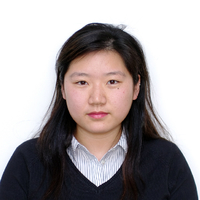
Shiyang Hu M. Sc.
Alumnus of the Pattern Recognition Lab of the Friedrich-Alexander-Universität Erlangen-Nürnberg
Projects
Florian L. Bayer, Shiyang Hu, Andreas Maier, Thomas Weber, Gisela Anton, Thilo Michel, and Christian Patrick Riess
-
Grating-based X-ray dark-field imaging is a novel technique for obtaining image contrast for object structures at size scales below setup resolution. Such an approach appears particularly beneficial for medical imaging and non-destructive testing. It has already been shown that the dark-field signal depends on the direction of observation. However, up to now, algorithms for fully recovering the orientation dependence in a tomographic volume are still unexplored. In this publication we propose a new reconstruction method for grating-based X-ray dark-field tomography, which models the orientation-dependent signal as an additional observable from a standard tomographic scan. In detail, we extend the tomographic volume to a tensorial set of voxel data, containing the local orientation and contributions to dark-field scattering. In our experiments we present the first results of several test specimen exhibiting a heterogeneous composition in micro-structure, which demonstrates the diagnostic potential of the new method.

 +49 9131 85 27894
+49 9131 85 27894
 +49 9131 85 27270
+49 9131 85 27270

